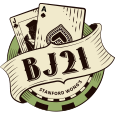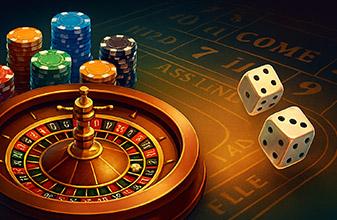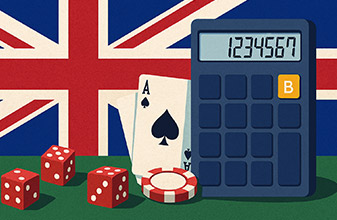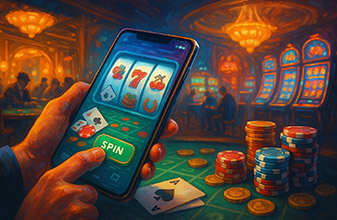I am going to try to shed some light rather than heat on this debate.
A claim has been made for the new OPP counting system, that it gets approximately 80% of the gain from hi-lo, the most popular count system, and therefore by implication most commercially available count systems (most count systems have very similar levels of performance) . Because the system is undoubtedly simpler to use, this would be impressive. I will try and outline the arguments for and against the system.
----------------------------------------------------------------------
CASE FOR THE PROSECUTION
However, a few problems. From what I can tell, the system does indeed capture about 80% of the EV of a system like hi-lo.
Firstly, comparing the EV of systems is a bit deceptive. This is because a reduction in performance of 20% is worse in terms of bankroll growth than it looks. Kelly bettors bet proportionately to their advantage, so the reduction in bankroll growth per hand, expressed in terms of SCORE, N0 etc is 36% not 20%. Kelly bettors have to bet more conservatively with smaller advantages meaning a small reduction in EV is greater in terms of total performance loss ie how much money you can actually expect to make.
For counters trying to parlay a few thousand up into black chips, the problem is even more serious. The extra gain from hi-lo does not remain static, but compounds over numerous trials rather like compound interest. The journey from red to black would take many thousands of hands longer on average with OPP.
A final problem: the only way to compare blackjack systems is to use optimal spreads, bet spreads which are proportional both to your edge and risk for a given count. Most blackjack books recommend their pet system with sub-optimal spreads. That is, they often recommend overbetting your advantage. This usually has the effect of inflating your advantage at the expense of risk. That is why all the books seem to say that their count system is the best. The bet spread has been rigged in favour of the particular system the author is touting. Though probably not done intentionally, this makes fair system comparisons very confusing.
The OPP creator does not seem to have used optimal spreads in developing his system. Therefore, his simulations have limited value when measured against hi-lo.
----------------------------------------------------------------------
CASE FOR THE DEFENSE
The OPP system is the simplest system on the market currently, with the exception of the ace-five system, which it undoubtedly outperforms. It could be learned in a day or less, unlike most commercial level-1 systems which require a month or more for the average person to learn. This alone probably justifies the existence of the count system.
Simpler systems are obviously easier to use. This has several benefits. Firstly, you will probably be able to play longer without fatigue. Similarly, you will probably be making fewer mistakes. You may be able to pull of a better act to fool the pit and buy greater longevity. There will be little unprofitable downtime while you learn and practice your system to keep your counting sharp. You can play faster.
You may even be able to do things like backcounting two or even three tables when most people can only really count one or perhaps two with hi-lo. Consequently, real-world application of OPP is much more rewarding than simulations would show up.
The author has approached the creation and testing of the system with some intellectual rigour. Few authors have bothered to go to the same lengths in testing their method against a range of games and employing a range of bet spreads. Despite the theoretical objections listed above I don't fault the integrity of the system creator.
Although as I stated above, the system would underperform other commerical systems given the approach of a professional player employing a Kelly strategy in a clinical, simulated enviroment, we should ask ourselves how many people really do that. Many bettors do not use Kelly. Many simply want to enjoy the casino experience for free. OPP allows them to do that. My guess would be such players dwarf the numbers of players who take all this blackjack stuff a bit too seriously. They have different goals and we shouldn't impose those of the high-stakes professional upon them.
Additionally, some professional players make there money with tricks other than card-counting. The advantage player whose meat and drink is comp-hustling, dealer errors, front-loading or whatever, has no real need for an advanced count system. The edge from such plays dwarfs that from card-counting. However, many such players tend to be uncomfortable just playing basic strategy and giving the house even a small, albeit temporary, edge.
----------------------------------------------------------------------
I've tried to be objective about this issue. My own personal feeling: I like the OPP system. It is fun. And it will make you a small profit over time. The greater the range of available count systems the better it is for AP's. My main objection is purely selfish: as with the KO system I suspect it will bring in lots of new counters and game quality may suffer as a result.










